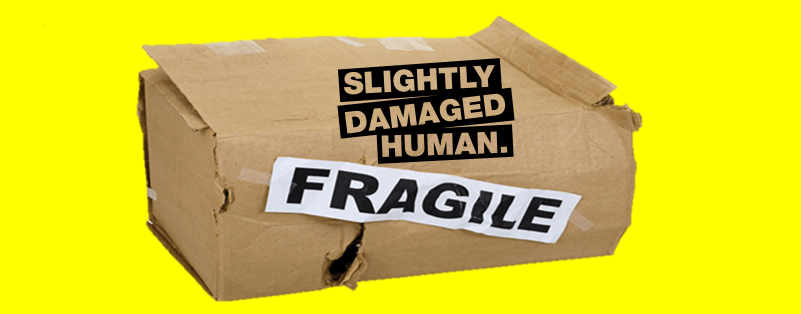
Upon its release, "Damaged Goods" received critical acclaim and became an indie hit, which led Gang of Four into signing to EMI. Last ignored the band's demands and designed the different sleeve, which included both the tear-out and an excerpt from the letter. The letter demanded Last to also include a word-for-word transcription of a conversation the band had with a stripper and a comedian as a caption to the newspaper tear-out.

The back cover features a tear-out from a newspaper of a female matador spearing a bull and an extract from the band's letter to Bob Last on how they wanted the single sleeve to be. The self-referencing text, "the sleeve for a Gang of Four recording of 'Damaged Goods,' 'Love Like Anthrax' and 'Armalite Rifle' is scrolled around the title. It features the bold black sans-serif title over a deep pink background, similar to the design of 1914's short-lived Blast magazine. The single cover art attributes influences to Situationism and Deconstructionism.

Dettmar, the author of Gang of Four's Entertainment!, argued that "the song's protagonist shows no self-awareness." In a 2009 interview with Clash magazine, singer and lyricist Jon King stated that he was inspired by an "in-store slogan" in a Morrisons supermarket in Leeds," using it as "a good starter for words about a doomed relationship where legover had become, maybe, too much of a good thing." Magginis also noted that the lyrics "could summarize the collective attitude of the post-punk era, bidding adieu to the more optimistic music of the '60s and self-absorbed '70s with a singalong chorus." Artwork Lyrically, the song is about "sexual politics," with "a sexual/political double entendre providing the crux of the song's message." Kevin J.H. Allmusic critic Tom Maginnis argued that the track is "the closest thing approaching a traditional pop single from their influential first record," while noting the "uncharacteristic lightness and bounce from Dave Allen's superb, hooky bass line, countered with a constant hacking rhythm guitar from Andy Gill." He also described the end result as "almost danceable, skewed only by singer Jon King's indignant rant." NME also stated that the track "boasts a riff that could slice through a particularly strong girder, the coldest funk this side of Prince & The Revolution." The song also features vocals by Jon King, which take the role of "a lonesome, longing lament" and a "nearly spoken-word" section sung by the band's guitarist Andy Gill. The title track starts with syncopated bass and guitar, which are later accompanied with the drums. Problems playing this file? See media help.


 0 kommentar(er)
0 kommentar(er)
